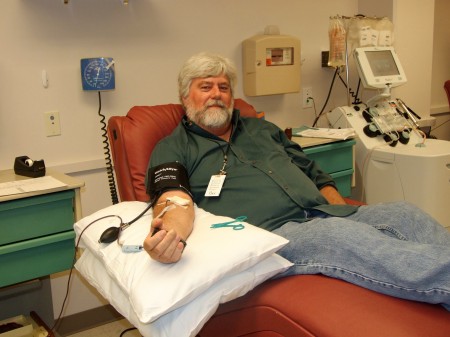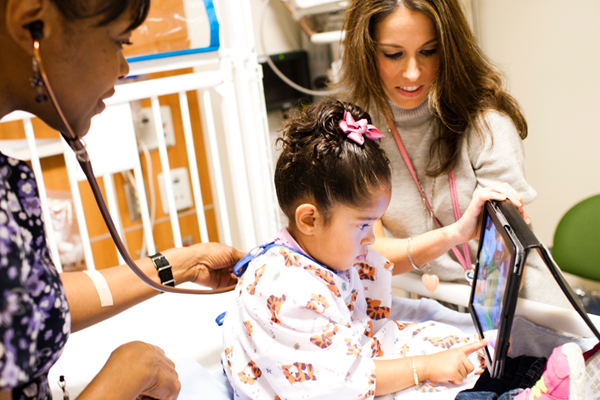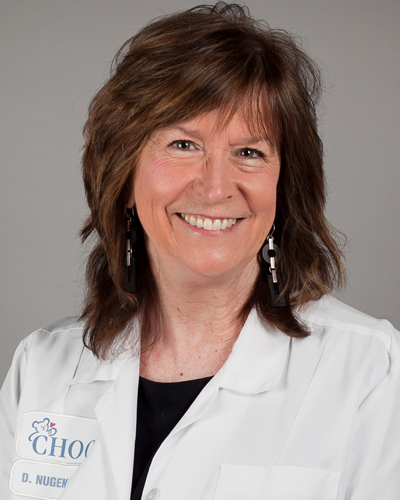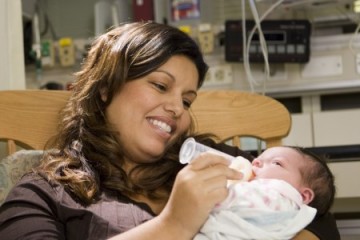CLOTTING AND BLEEDING DISORDERS
“A clotting disorder can mean that your blood doesn’t clot enough, or it may clot too much. Both can cause medical emergencies. Too much clotting in a blood vessel in your head can cause a stroke, even in a young child,” says Dr. Nugent, CHOC pediatric hematology specialist. “Alternatively, not enough clotting results in a bleeding disorder, like Von Willebrand disease which is common, occurs in about 1 in 100 people, and affects boys and girls. Boys tend to get frequent nosebleeds and bruising when they are younger and girls can have a problem with heavy menstrual periods that can make them anemic.” Von Willebrand disease is the most common bleeding disorder in the U.S. affecting both men and women, while hemophilia is a well-known X-linked genetic bleeding condition affecting primarily boys.
TREATMENT AT HOME
Many children with clotting and bleeding disorders are diagnosed as babies and can be successfully treated at home. The clotting protein or factor that they are missing in their blood can be produced by genetic engineering and concentrated in a small vial, so patients can get an intravenous infusion. This treatment corrects the defect for several days so the children can participate in normal activities without fear of bleeding, Dr. Nugent says. “Family education is critical with all bleeding and clotting disorders. Families should know how to treat their child in all situations if there is a problem. We want families to know more than most doctors know about their child’s rare bleeding disorder. We want to empower patients to be independent and knowledgeable so they can regularly treat themselves at home to prevent bleeding.”
HELPING THE FAMILY
Dr. Nugent says it’s common that young patients with bleeding or clotting disorders will have other family members — both other children and adults — who have a hereditary blood disorder that has never been diagnosed. Help is available, she says. “If you or someone in your family may have a blood or bleeding disorder and it’s a child, contact CHOC. Adults should call the Center for Inherited Blood Disorders next door to CHOC.
The website is c3dibd.org or they can call 714-221-1200.”
FAST FACTS
- Estimated Number of Hemophilia Patients in the U.S.: 20,000-25,000
- Number of Americans who die each year from abnormal blood clots: 600,000+



















